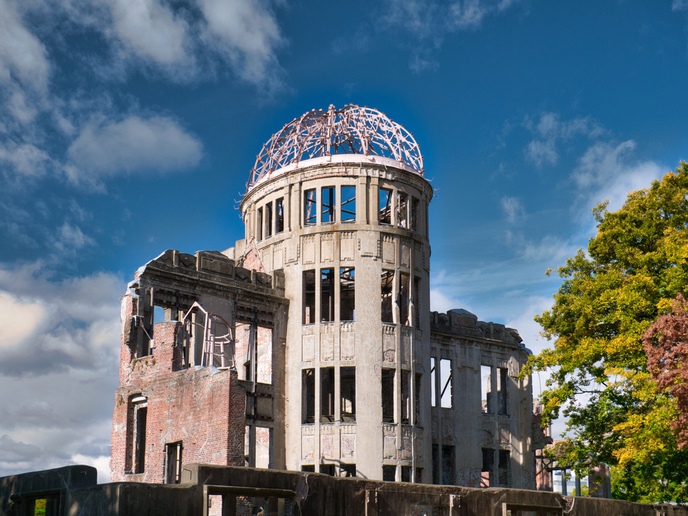Hiroshima and Nagasaki at 75: How do Europeans feel about nuclear weapons?
In 1945, the first atomic bombs ever used in warfare were dropped on the Japanese cities of Hiroshima and Nagasaki, causing unimaginable horror and devastation. The two bombs killed over 200 000 people, some of them instantaneously and others over months or years. The world was stunned by this act and the untold damage inflicted upon the civilian population. “While Hiroshima and Nagasaki have been the last two cities to be destroyed by nuclear weapons, we cannot be sure that they will be the last. Since 1945, the United States, the Soviet Union/Russia, the United Kingdom, France, China, Israel, India, Pakistan, and North Korea have armed themselves with nuclear weapons that have much more destructive power in comparison to those that destroyed Hiroshima and Nagasaki,” comments Benoît Pelopidas, principal investigator of the NUCLEAR project that is partly funded by the European Research Council (ERC) in a ‘The Hindu’ op-ed article. He is also founder of the Nuclear Knowledges programme at Sciences Po’s Center for International Studies in Paris. The op-ed was submitted with M.V. Ramana. Thousands of nuclear weapons have been tested, causing long-term damage to the environment and public health. Pelopidas explains: “An appreciation of the scale of the potential damage and a realisation that nuclear weapons could be launched at any moment against any target around the world should instil a sense of vulnerability in all of us.” Supporters of nuclear armament claim that a nuclear arsenal is a deterrent to nuclear war, as fear of retaliation would prevent a state from using nuclear weapons against another. Pelopidas continues: “Nuclear threats have not always produced fear and, in turn, fear has not always induced caution. To the contrary, nuclear threats in some cases have produced anger, and anger can trigger a drive to escalate… Countries with nuclear weapons have in fact gone to war quite often, even with other countries with nuclear weapons, albeit in a limited fashion or through proxies.”
Did the Hiroshima and Nagasaki atomic bombings put an end to WWII?
Many people believe that the bombings did in fact put an end to the war and that the United States chose the lesser of two evils. Although this narrative has been challenged by historians, a significant number of Europeans still believe it, according to an ERC-funded survey carried out in October 2019. In a ‘Bulletin of the Atomic Scientists’ analysis, Pelopidas states: “European publics remain on the whole staunch in their support for the elimination of nuclear weapons. Even in nuclear-armed France and the United Kingdom, large majorities reject the idea that nuclear weapons could ever be used morally.” He continues: “Recent discoveries about Nagasaki bring an important dimension to nuclear politics that is often overlooked: the vulnerability of nuclear command and control and the role of luck in the outcome of nuclear events.” Nagasaki was struck by a bomb originally intended for Kokura due to an in-flight error. The analysis was co-written by Kjølv Egeland. The ongoing NUCLEAR (Nuclear Weapons Choices Governing vulnerabilities between past and future) project provides the first in-depth global investigation of the grounds on which the scope of publicly acceptable nuclear weapons choices have been based since the end of nuclear testing.
Keywords
NUCLEAR, atomic bomb, Hiroshima, Nagasaki, 75th anniversary, bombing, nuclear weapon



